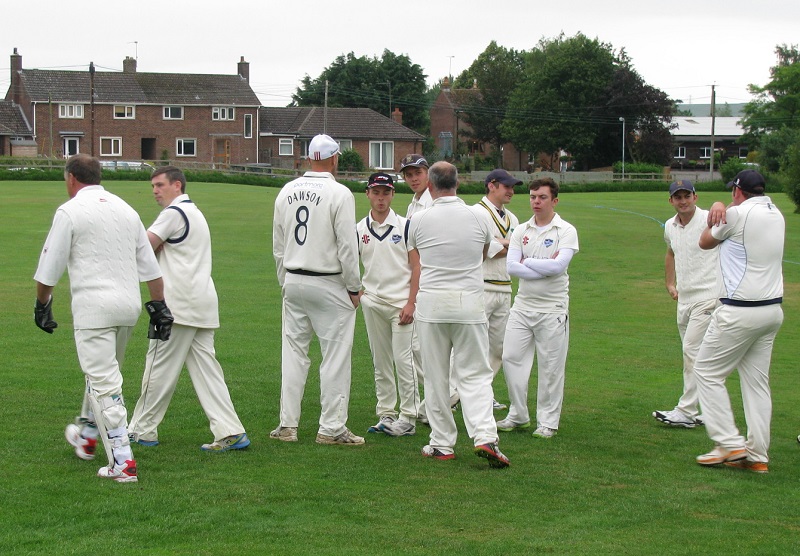Here’s something I wrote back in 2008, and unbelievably, it’s just as valid today than it was then, perhaps even more so. I’ve also added a few things to clean it up a little and make it better.
The “Power” Elite
July 9, 2008
8:00 AM CDT
The required reading for today’s class is, first, William Deresiewicz’s article about the transformation of our elite universities into high-priced trade schools:
Our best universities have forgotten that the reason they exist is to make minds, not careers.
Next, you should read Mary Grabar’s bleak article about how the college curriculum itself is becoming less academic, and more like an Oprah Winfrey show:
Oprah is us. Course offerings on Oprah appear in college catalogs, while those on Milton disappear.
When you’re done with both, have swept up the broken glass and china, and repaired the bullet-holes in the walls, come back here and read the rest.
As long as there are people, there will be elites (and elitists) — and as long as there are those, there will be institutions which cater to them, and attempt to perpetuate them. Thus the phenomenon of “Oxbridge” (Cambridge and Oxford universities) in the UK, the “Ivy League” (Yale, Harvard, et al.) on this side of the Atlantic, and their “feeder” schools (Eton, Harrow, Groton and so on), all of which exist to provide an education to the scions of the elite families. The primary difference between the elites of yesteryear and those of today is that social standing was more important then, while wealth is more of a deciding factor today. (More on this in a moment.)
‘Twas ever thus, and to be frank, they served their purpose, up to a point: that point was where the mediocre assumed positions of power simply because of who they were and where they’d been to school, rather than on pure merit (G.W. Bush is the most famous example, in the modern era, although history is littered with them).
To be frank, the elite institutions are not a bad thing in and of themselves. There’s nothing intrinsically wrong with catering to the elites, just as there’s nothing wrong with catering to the working classes. At least, it can be said, those institutions helped the elites prepare to govern and to manage in their later lives.
What interests me about the fall of the “Ivies” in the United States is that because they have become so dependent on wealth for their survival, it should come as no surprise that their focus has likewise become narrowed towards creating wealthy alumni. In other words, what was once a happy coincidence is now a grim necessity — so there can be little doubt that the focus of universities would shift towards careerism and wealth accumulation, and away from actual education. Small wonder that Harvard Law School, Harvard Medical School and the Harvard School of Business are the tails wagging the Harvard dog, because those alumni will be more financially desirable to Harvard than, say, a Harvard-trained tenured professor of English tucked away at some small Midwest school.
And the Ivy League schools, unlike the unglamorous places like the University of Michigan, do not have the luxury of successful sports teams to bring in alumnus support, so, in the absence of actual merit (that ugly word) they have to rely on the cachet (a far more romantic one) of their names.
Of course, once the Ivies descend from their lofty perches of academic excellence to become simple training facilities, they are exposed to stiff competition from non-Ivy League institutions. At one point, for example, more Fortune 500 CFOs were alumni of Chicago’s Northwestern University than any two Ivy League schools combined, while the Harvard MBA has, generally, been a real-world synonym for “expensive failure”, except as consultants, where they are a synonym for “expensive disaster”.
At some point — probably now — the Ivy League ought to lose their title of “universities” and become mere “colleges”. No longer are they institutes of higher learning, but simple trade schools. (It should be noted that it has only been a fairly recent development that Law, Medicine and Commerce became fields of study, rather than just the product of apprenticeships.)
Certainly, this process is being hastened by the demise of classical education at all colleges, if Mary Grabar is to be believed (and even a cursory glance at the curricula being offered in today’s Humanities departments should provide substantial proof thereof). In place of rigorous study and its attendant discipline, students instead are being taught to rely on their “feelings” and “opinions”, as though the untutored and callow sentiments of youthful inexperience are worth as much as thoughtful, studied analysis.
(A personal aside: I remember once using a translated quote from a Roman philosopher to further an oral argument in a freshman Philosophy class, only to receive a stinging rebuke from the professor, who quoted the entire passage back to me in the original Latin, and proved that I’d misread the intent of the argument completely. One wonders if any modern-day professor is equipped to do the same.)
Professor Grabar is refreshingly blunt about the problem:
I blame it on women, specifically those women who, instead of working their ways into the club through rules of evidence, common values, and objective scholarship, have pushed in their alternate “ways of knowing.” The feminization of education has led to the idolization of Oprah. In the matriarchal upheaval in the academy, the great works of the canon that draw from our Western tradition, like Milton’s majestic Paradise Lost, are replaced by crudely rendered emotive investigations into oppression, like Charlotte Perkins Gilman’s “The Yellow Wallpaper,” or any of the “multicultural” offerings in the latest anthology.
In addition to eviscerating the canon to add women’s writing, of whatever dubious value (personal letters, diary entries, popular books), the academic feminists’ project was to attack the base of our way of thinking, which they correctly traced back to the notion of a monotheistic God who created a universe with an order based on reason, however indiscernible that at times might be to those he endowed with reason. The matriarchs’ attacks began on linearity, logic, argumentation — the very notion of the individual thinking self. Theorists promoting the “maternal presence in the classroom” accused even the thesis statement of the freshman five-paragraph essay of having embedded within it masculine goal-oriented thinking that in a rapacious manner eliminates weaker ideas.
And thus, the real danger of this nonsense is revealed. The recipients of degrees earned by the embrace of “alternate ways of knowing” are going on to positions of government and management.
So “weaker ideas” are given as much consideration and weight as ideas proven to be logical, effective and workable. It’s risible when this approach is taken by teachers, but it’s not so funny when this thoughtless nonsense becomes the basis of laws, government and commerce.
We should not be surprised, therefore, when a young, inexperienced Presidential candidate [Urkel Obama] uses as his platform a vacuous belief in soft, unattainable (and unprovable) concepts such as “hope” and “change”. We should likewise be unsurprised when this vacuity finds strong support from a bloc of youthful idealists who have been schooled only in similar terms, as well as the intellectually-lazy older group of voters who believe that Oprah Winfrey has actually contributed anything of value to the social and political worlds.
We should also show no surprise when the modern corporation favors unfocused “group decision-making” over individual responsibility and management, even when the end result is no result (an excellent example: the WTC “memorial” which, ten years after 9/11, was still pretty much a large hole in the ground).
It is even less surprising that this so-called “management style” has started to pervade the military: where a sniper has to get approval from “higher authority” to destroy a target already designated as one worthy of destruction.
At some point, of course, all this will collapse on itself. Emotion and feelings are no substitute for logic, reason and experience: and institutions which accept the former must, eventually fall prey to their competitors who use the latter.
What is most depressing is not that this is happening, as much as the fact that the process has been designed, aided and abetted by those who are supposed to keep us away from such mistakes. That would be academia, the so-called gatekeepers of learning and education.
But they’re no longer educators: they’re trainers. Even worse, they’re trainers who are training people in a way which will, eventually guarantee failure.
The only bit of good news is that the people who started this nonsense may be dying off (somewhat too slowly for my liking). But their disappearance will likely come too late.










